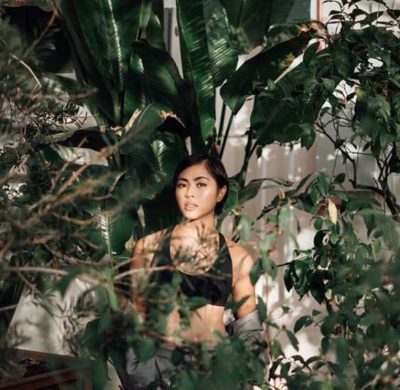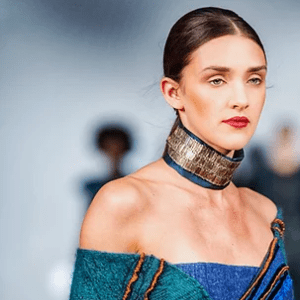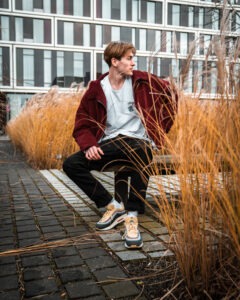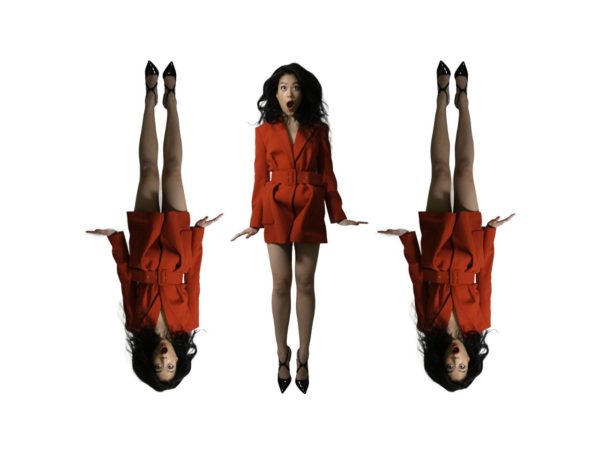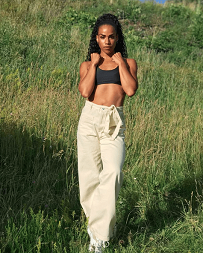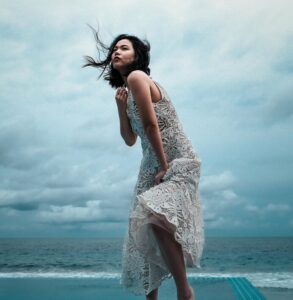“It is not our differences that divide us. It is our inability to recognize, accept, and celebrate those differences.”
Audre Lorde, self-described “black, lesbian, mother, warrior, poet”
African, Latin, Asian, and other indigenous cultures have inspired the fashion world for a long time. There is beauty in this show of diversity, but an important question remains- is the industry being inclusive?
Diversity and inclusivity are two concepts that are slightly different but often used interchangeably. Most companies may already have diversity; but to make a difference, inclusion is important. Inclusion strategist Verna Myers has a great analogy: “Diversity is being invited to the party. Inclusion is being asked to dance.”
This call for inclusivity in the fashion industry has been louder than ever. Fashion has a long history of elitism and exclusivity: from the markets it caters to, the designers it rallies and supports, down to the models it features on runways and magazines.
For fashion to be truly sustainable and ethical, it’s important that the voices of the Black, Indigenous, and People of Color (BIPOC) group are heard and integrated.
Diversity is being invited to the party. Inclusion is being asked to dance.
Why Do We Need To Support BIPOC brands?
Supporting BIPOC-owned brands is one way to push for inclusivity in fashion. BIPOC fashion designers bring fresh perspectives that drive change, as well as share new ideas that help push the boundaries of creativity.
Historically, it’s also the BIPOC community who is affected the most by environmental and labor issues of the fashion industry.
How Can We Support BIPOC brands?
Never underestimate your power as a consumer (especially if you have a smartphone or a keyboard!). Now, more than ever, the internet makes it easier for us to show love to BIPOC creators and brands. You can do this in the following ways:
- Be heard. Voice your support through social media and give shout-outs to BIPOC brands whose style and values you adore.
- Review thoughtfully. Don’t forget to leave positive reviews of their products or service if you are satisfied.
- Spend your money where it truly matters. Buying from BIPOC brands is a great way to show that you are committed to supporting their traditions and values. It supports the industries and minority groups that have long been ignored and helps to uplift their status.
Below, we feature 20 BIPOC fashion entrepreneurs from all over the world, who are changing the fashion scene with their inclusivity, diversity, and sustainable business practices:
20 BIPOC-owned Fashion Brands To Check Out in 2021:
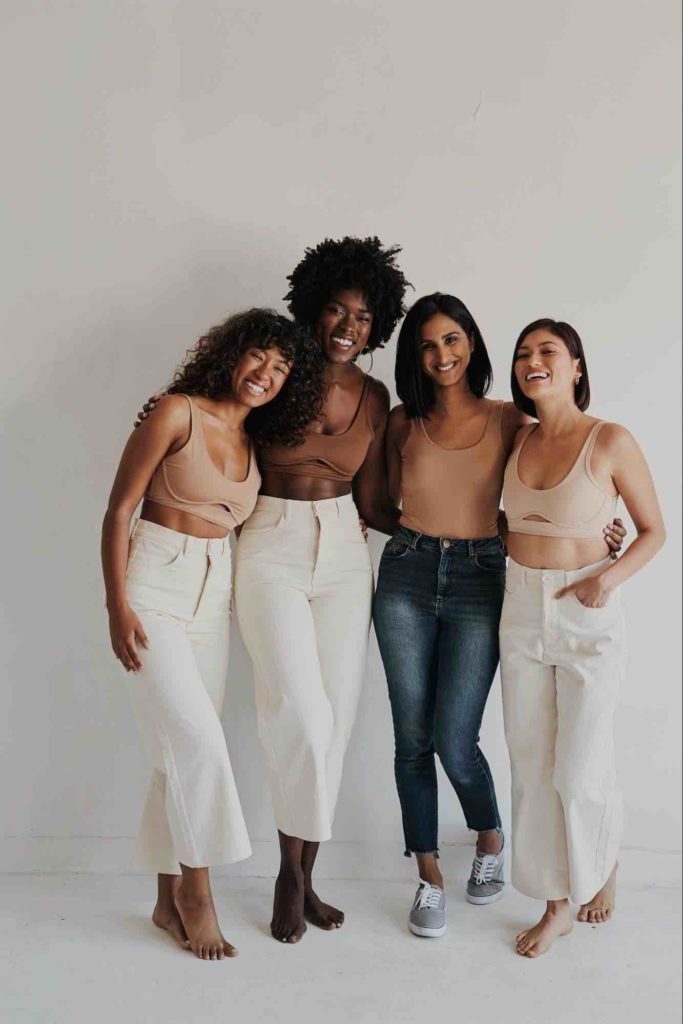
Advocacies: Inclusivity, Sustainability, Body positivity
Shop For: Ethically-made lingerie for all skin tones
If you’re a brown-skinned girl who has trouble finding the perfect nude underwear to match your skin tone, Proclaim has you covered. Founder Shobha Philips started Proclaim out of frustration- she got tired of not being able to find a nude bra to match her brown skin. “For years the fashion industry has chosen to ignore me and millions of women that don’t have the skin color that is ubiquitously known as nude.”
It’s an inclusive lingerie line which expands on the definition of nude, one ethically-made bra at a time. Aside from being stylish and comfy, they’re eco-friendly as well. Their products are made from earth-conscious materials such as wood pulp and 100% post-consumer recycled plastic water bottles.
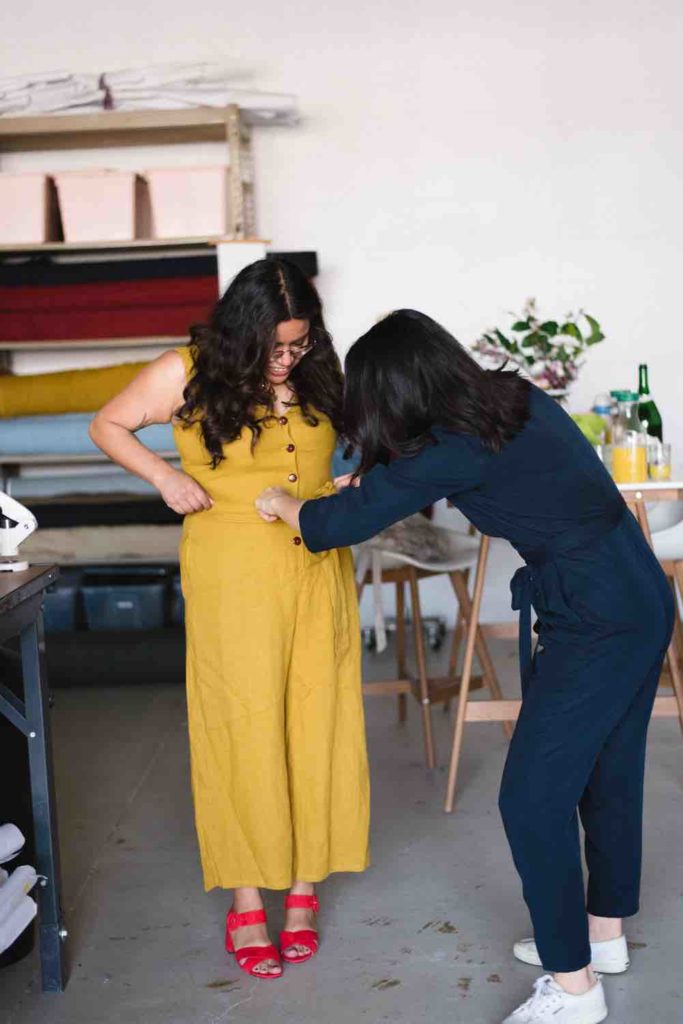
Advocacies: Inclusivity, Body Positivity, Sustainability
Shop for: Wardrobe staples for all sizes
Fact: Our bodies change; but most of our clothes don’t allow for these weight fluctuations. We either have to buy new outfits or stare with frustration at a full closet with “nothing to wear”. Enter Sotela, a brand that celebrates body positivity by making wardrobe staples that withstand our bodies’ changing shapes. When clothes fit well, you definitely feel better.
Sotela was founded in Los Angeles by Hanna Baror-Padilla who says: “Our bodies change all the time— we get bloated, pregnant, lose weight, gain weight— but the fit of our clothes doesn’t often reflect that physical reality.”
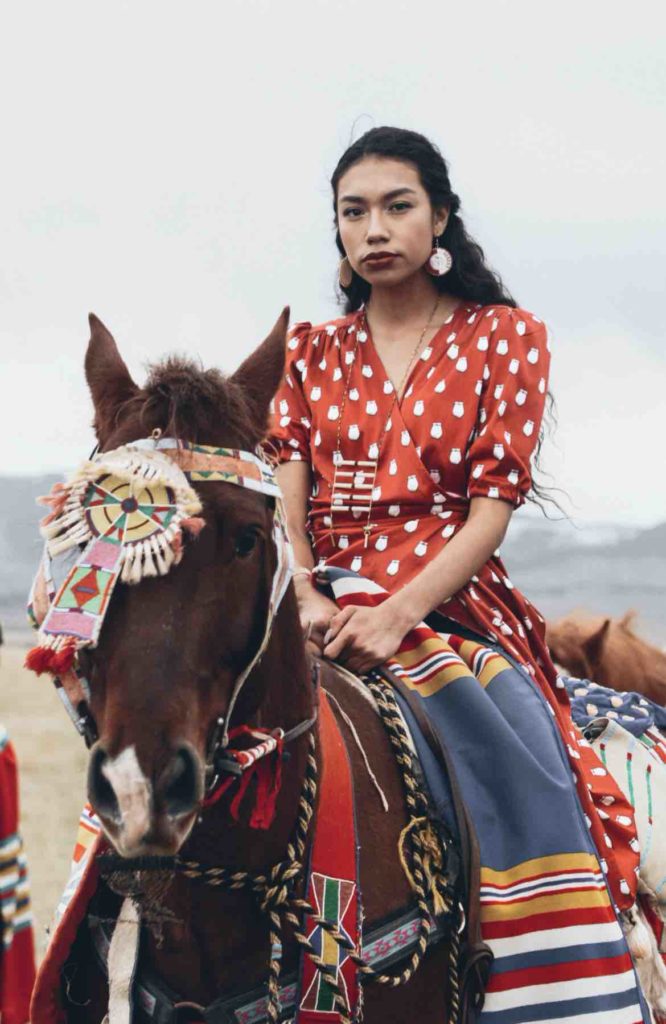
Advocacy: Indigenous culture preservation, Women empowerment, Inclusivity
Shop For: Womenswear and accessories in indigenous weaves and textiles
Bethany Yellowtail is a Native American designer who grew up on the Apsáalooke Nation and Northern Cheyenne Indian reservations in southeastern Montana. She knows that art-particularly beadwork, metalcrafts, and textiles- is important in the preservation of indigenous culture. This led her to start the B.Yellowtail brand in 2015 where she designs clothes and accessories that are deeply rooted in her Native American heritage.
After a year, she started the B.Yellowtail Collective to support the creativity of indigenous women makers and to create economic opportunities for them.
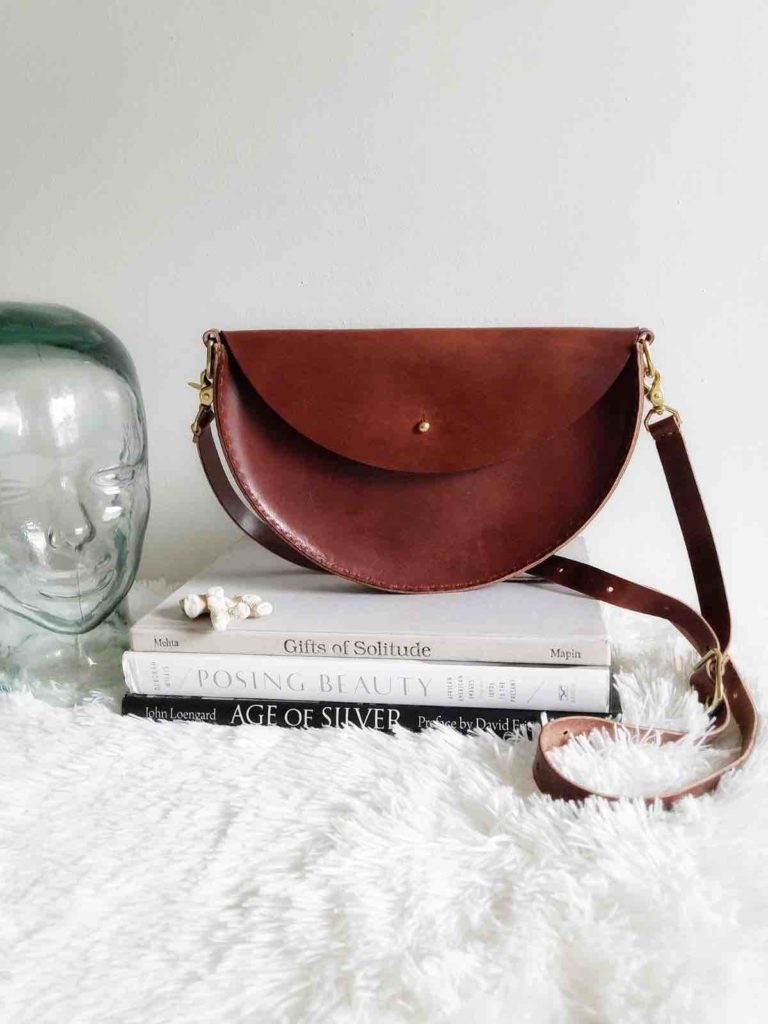
Advocacy: Slow fashion, Sustainability, Minimalism
Shop for: Minimalist leather bags and belts
Tree Fairfax is black-owned company that makes timeless leather goods. Founded by Tricia Fairfax in Virginia, she designs her bags with minimalism in mind: “I like to move around lightly, no restrictions or heaviness. I like to keep everything easy and kind of out of my way when I am out and about. So I created my minimal bags because I wanted something that would make my life easier.”
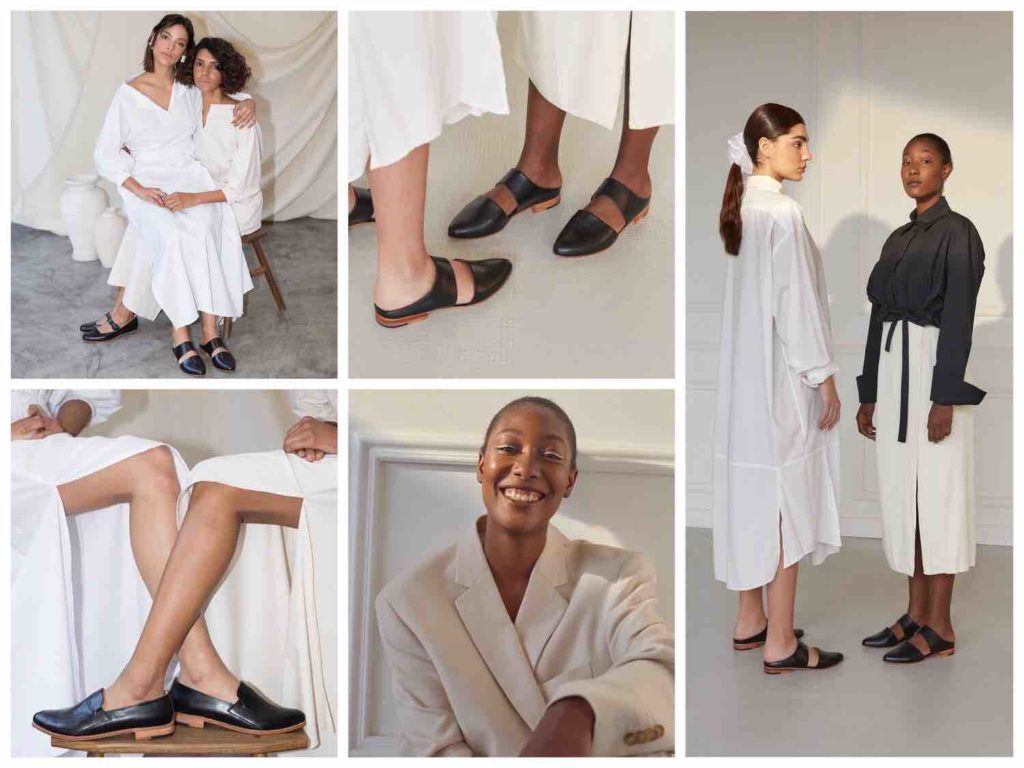
Advocacy: Ethical production, Inclusivity, Sustainability
Shop for: Modern shoe essentials in handcrafted leather
ZouXou is a slow fashion footwear brand that makes premium leather shoes, handcrafted in small batches in Argentina. Designer Katherine Theobalds started the brand in 2015 after leaving a traditional career in fashion design. She was disillusioned by what she discovered there- a toxic culture and a lot of wasted materials at the companies she worked for. Zou was born out of her wanting to reconnect with what she values most as a designer:
“Everything we purchase affects another human being somewhere, and that impact should be a constructive one. This is something I am not willing to compromise on.”
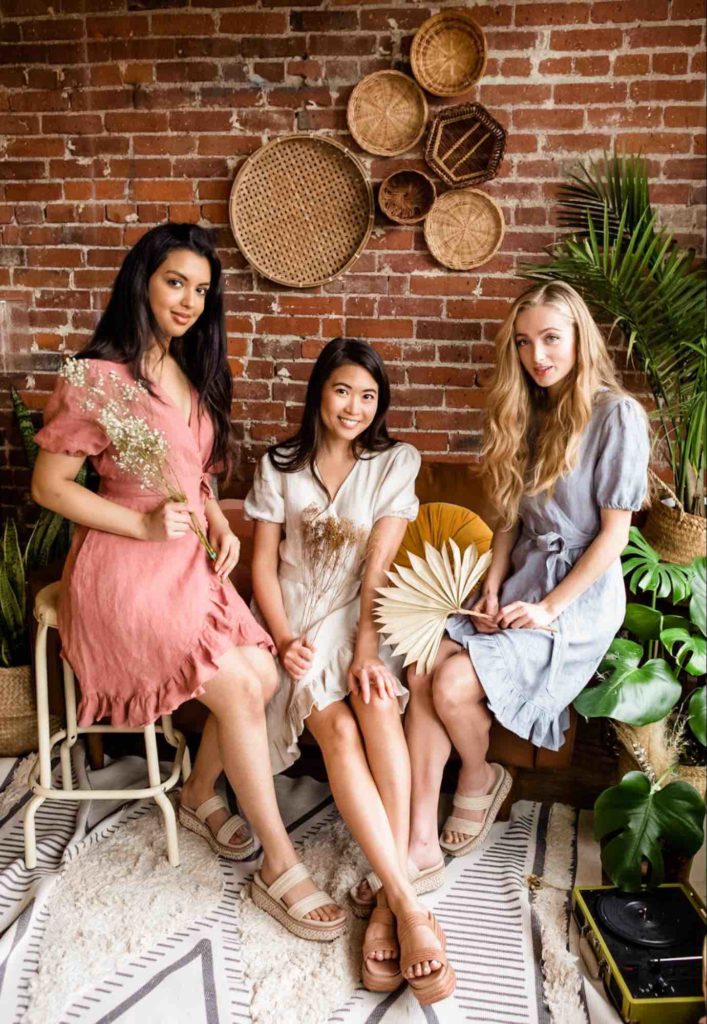
Advocacy: Slow fashion, Sustainable fashion, Inclusivity
Shop For: Romantic feminine pieces for petites
Lovanie is a brand that celebrates the power of petites- clothes are designed from scratch to fit petites who normally have shorter legs or torso. Founder Nics Asawasudsakorn, who spent her childhood in Thailand, remembers how she and her mom would visit an uncle who tailor-made clothes for them. Nics created Lovanie as an ode to the slow fashion lifestyle she grew up with. Sustainability is also something she values. In her first collection, she uses deadstock fabrics and consciously-sourced eco-friendly fibers such as linen and organic cotton.
“I believe that the clothes we buy should be loved for many years to come – and that starts with creating and choosing pieces that fit well and make us look our best. ”
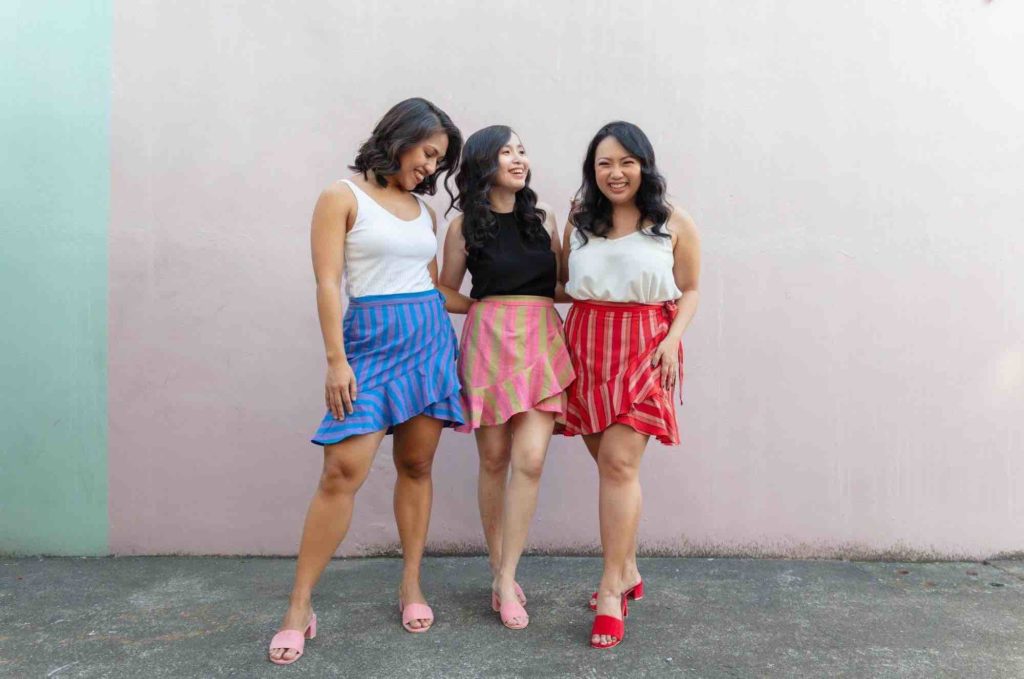
Advocacy: Indigenous culture preservation, Women empowerment, Circular fashion
Shop For: Modern womenswear in indigenous weaves and textiles
The Philippines is well-known for its beaches. But did you know it also has a rich weaving tradition? Practiced by indigenous tribes living in the mountains and hard to reach areas, many of these crafts are in danger of disappearing.This is what inspired founder Anya Lim to start the brand.
Anthill uses traditional Philippine weaves and textiles, made into beautiful skirts, dresses and jumpsuits that won’t look out of place in this modern era. Anthill’s partnerships with makers, who are mostly women, helps to provide them with a sustainable source of income.
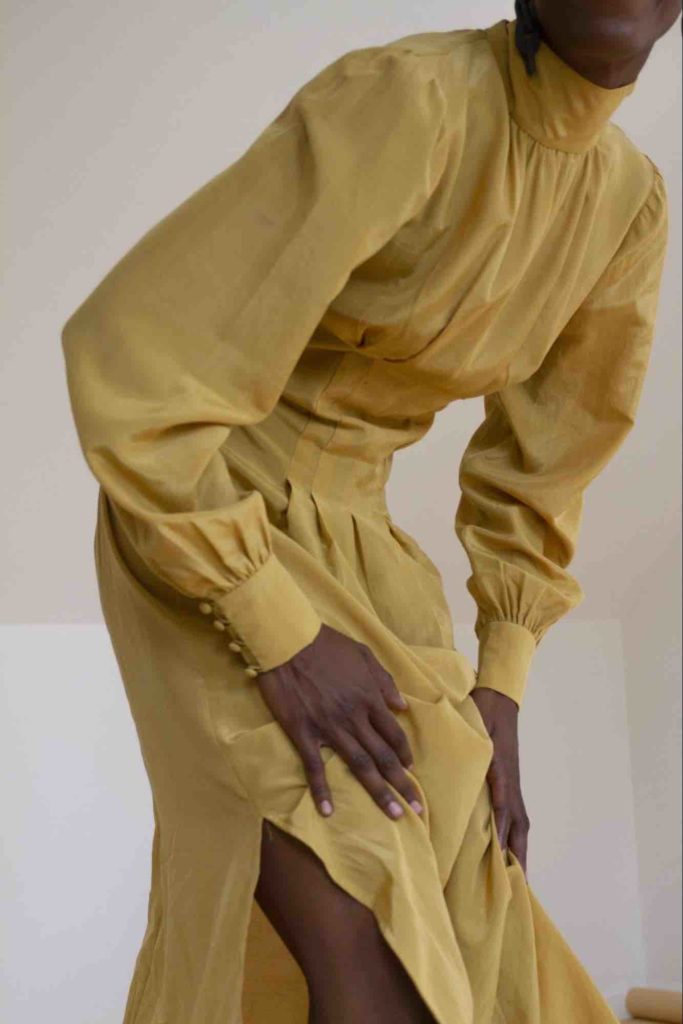
Advocacies: Inclusivity, Body Positivity, Sustainable Fashion
Shop For: Flowy pieces made to move round in
Selva Negra started out as a bootstrapped project by Kristen Gonzales and Sam Romero in a tiny Brooklyn apartment, with a $500 initial investment and some scrap fabrics. Fast forward 5 years and several collections later, they’re going strong and shipping orders world-wide. Their designs are influenced by their Latina heritage- vibrant colors and expressive designs cut into multi-use and comfortable silhouettes. Selva Negra is deeply committed to ethical business practices as well. They value production transparency, zero-waste packaging, and using sustainably-sourced materials.

Advocacies: Indigenous culture preservation, Sustainability, Inclusivity
Shop for: Sturdy woven bags in vibrant colors
African-designed, African-made, and African-inspired. Founder Akosua Afriyie-Kumi started the brand with the goal of introducing the beautiful weaving techniques of Ghana to the world. As a child growing up in Ghana, she always had basket bags around her. She liked to give them away as gifts or use them for storage. She realized that with some design upgrades, she could turn them into fashionable handbags that add a nice tropical touch to your wardrobe.
Kumi on how moving back to Ghana changed her relationship with fashion: “When I lived away from here, in London, I used to shop at Zara. I wanted everything now now now. You order something online and it needs to arrive in the next hour. That was the norm until I came back to Ghana. The lifestyle and relearning that impacts the world in a very different way. A lot of it comes back to human relations, and how I relate to objects.”
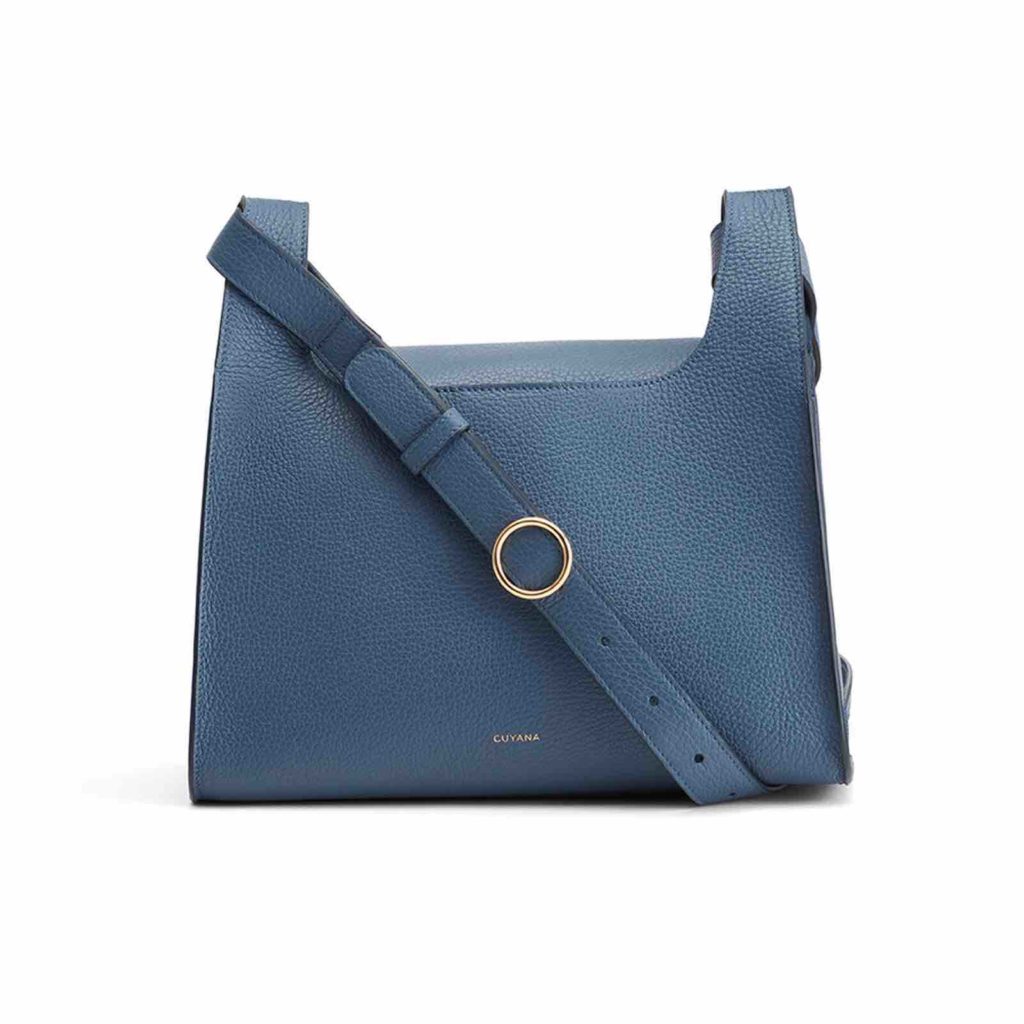
Advocacies: Slow fashion, Sustainability, Minimalism
Shop For: Leather bags in classic shapes and colors
San Francisco-based Cuyana handbags have been spotted on the arms of empowered BIPOC women such as Jessica Alba and Meghan Markle. Extremely versatile and functional, Cuyana’s bags are made with ethically-sourced sumptuous leathers. Founders Karla Gallardo and Shilpa Shah started Cuyana with a vision to create a design house that’s founded in the philosophy of “buying fewer, better pieces”. Cuyana, meaning “to love”, is a word from the Quechua language spoken by the indigenous artisans who made their first batch of products.
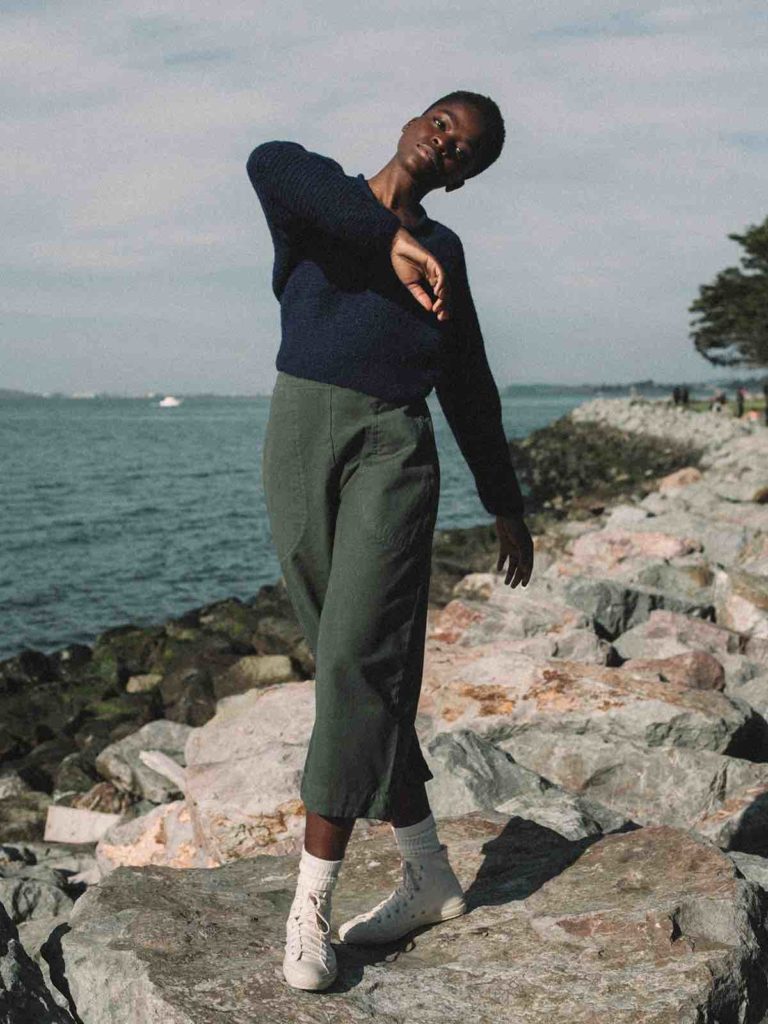
Advocacies: Inclusivity, Body Positivity, Sustainability
Shop For: Beyond basic tees and denims
A black-owned womenswear brand founded by Aliya Wanek, who believes that clothes can be a link between one’s identity and style. Her mission is to create ethically-made, stylish and comfortable clothes that celebrate the wearer’s individuality.
The sewing is done either by herself or small contractors in the Bay Area, always keeping in mind ways to reduce the manufacturing footprint. Representation is very important to her and her brand.
When asked by Prynne Magazine on how she uses her brand to push for representation in the fashion industry: “My ex partner gave me a compliment I will always remember: ‘You can tell that a black woman is photographing these women.’ That stuck with me because what you see in the person can come through the camera. I want you to see us. I don’t want you to exoticize or infantilize us. It’s deeply personal to me to do the photography.”
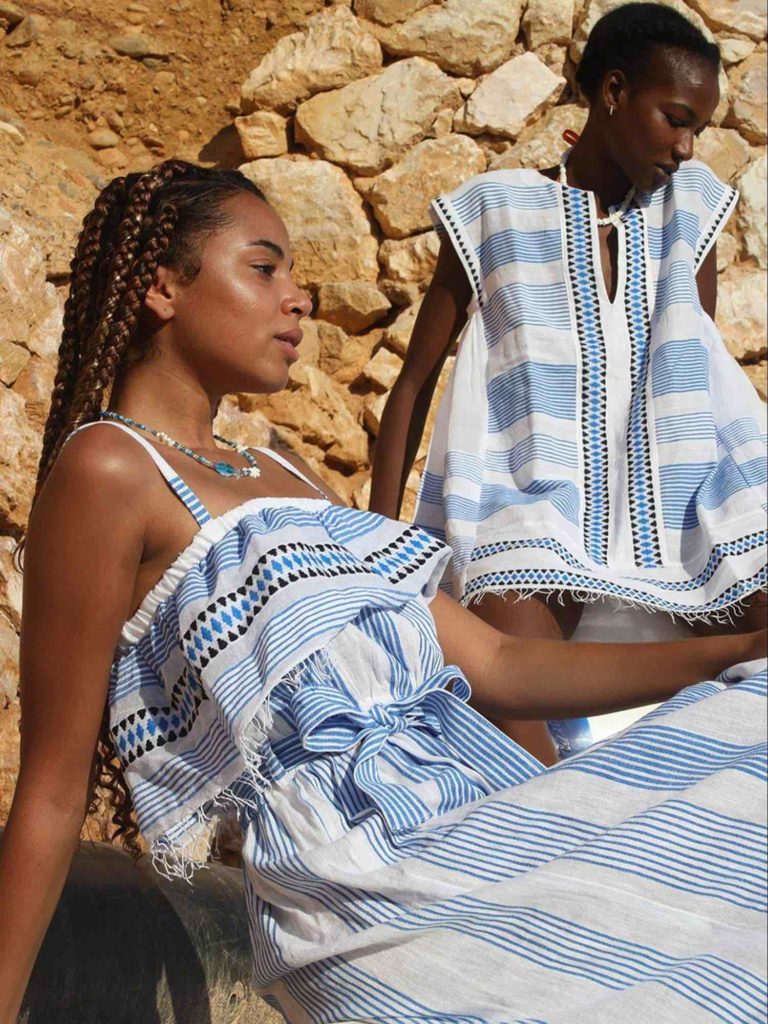
Advocacy: Women empowerment, Cultural preservation, Ethical production
Shop for: Sustainably-made summer essentials
Following a trip she took to her home country Ethiopia in 2007, supermodel Liya Kebede launched the brand after discovering that traditional weavers no longer had a market for their craft. She says, “The idea is to inspire others to look at Africa as a source of high-end artisanal work, and not just be a place to which you outsource for cheap labour.” Lemlem, meaning ‘to bloom’ in Amharic, carries a collection of artisan-made goods that include dreamy dresses, blouses and jumpsuits in handwoven, natural cotton in vibrant colors.
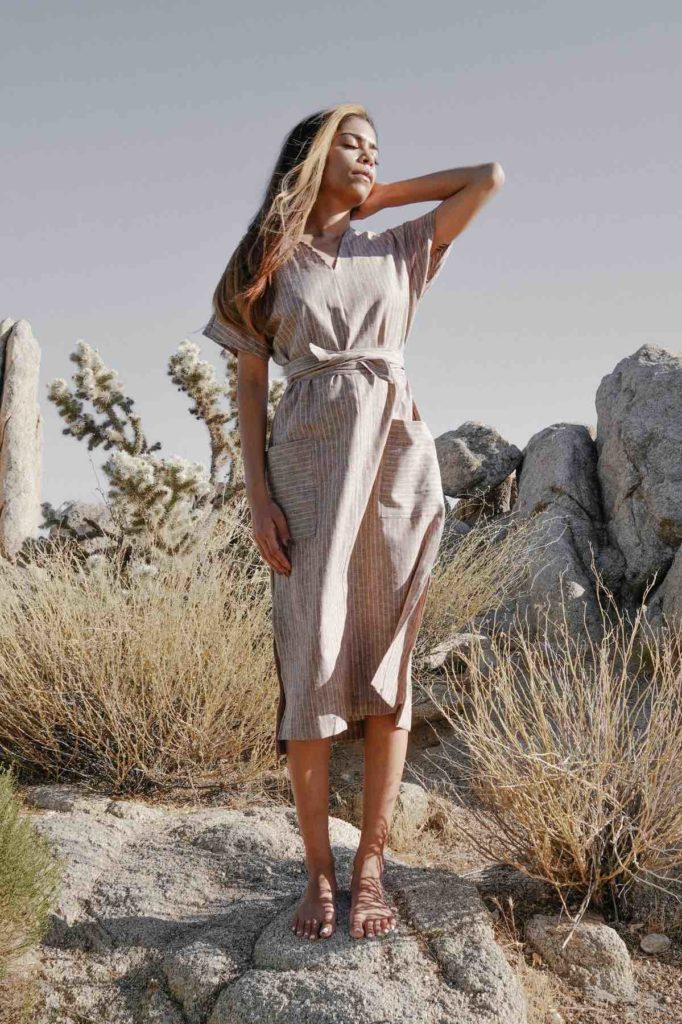
Advocacies: Sustainability, Inclusivity
Shop For: Comfortable, casual daily wear
What happens when a climate scientist discovers the impact of the fashion industry? A clothing brand is born. LA-based Gina Stovall, founder of Two Days Off says, “I want to explore how we can create transformational change within the fashion industry”.
She makes few-of-a-kind pieces, made from deadstock fabrics that offer “Comfort for everyday”. Two Days Off calls to mind the ease of weekends, which Stovall wants to represent in her designs.
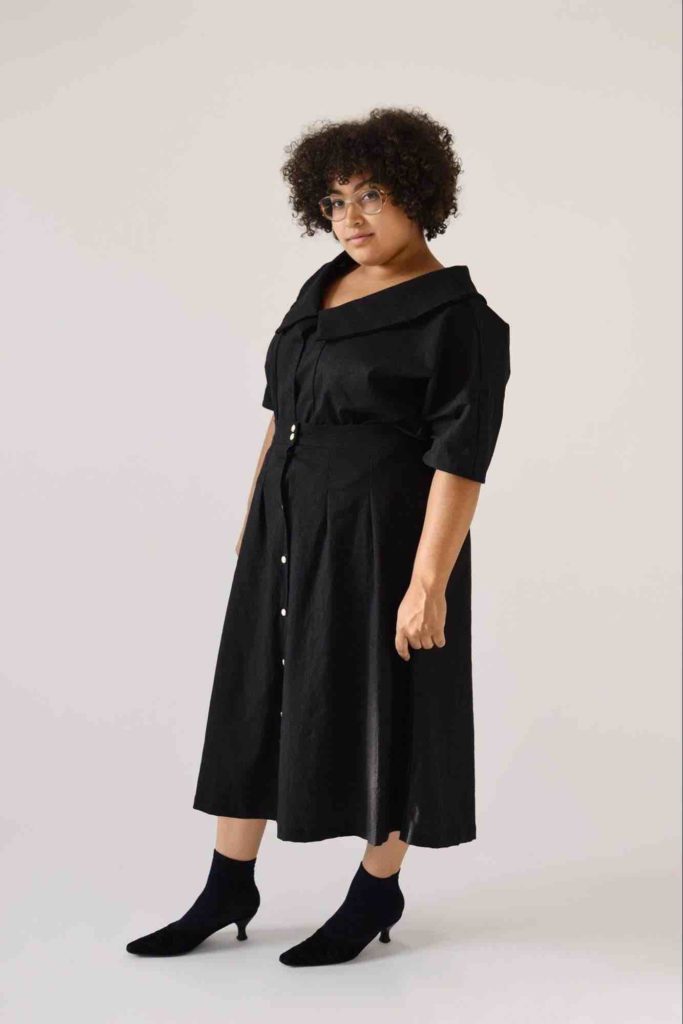
Advocacies: Sustainability, Slow fashion, Inclusivity
Shop For: Stylish casualwear and vintage items
Founders and sisters Rue Newby, Tish Rezek, and Jael Toczko created Label by Three to fill in the void in the fashion industry where inclusivity, transparency, and quality is lacking. They design clothes using deadstock fabric and they also have a collection of vintage and pre-loved clothes on the site. As women of color, they wanted to rewrite the narrative of what an ethical brand is.
They say: “Fast fashion negatively impacts communities of color, particularly women of color, much more than people think. We wanted to be a part of the fashion world but wanted it to be a place that was healthy, inclusive, and important for everyone.”

Advocacies: Inclusivity, Culture preservation, Sustainability
Shop For: Creole and vintage-inspired pieces
House of Aama is black-owned label founded by mother and daughter duo Rebecca Henry and Akua Shabak. Akua, the daughter, was frustrated by her inability to find clothes that were rooted in the aesthetics of her African roots. She wanted to make clothes that look back and “celebrate the experiences of the Southern Parlor ladies, Conjurer women, blues men and all their intersections.”
They are based in LA and 100% of the manufacturing is done there to minimize their carbon footprint.
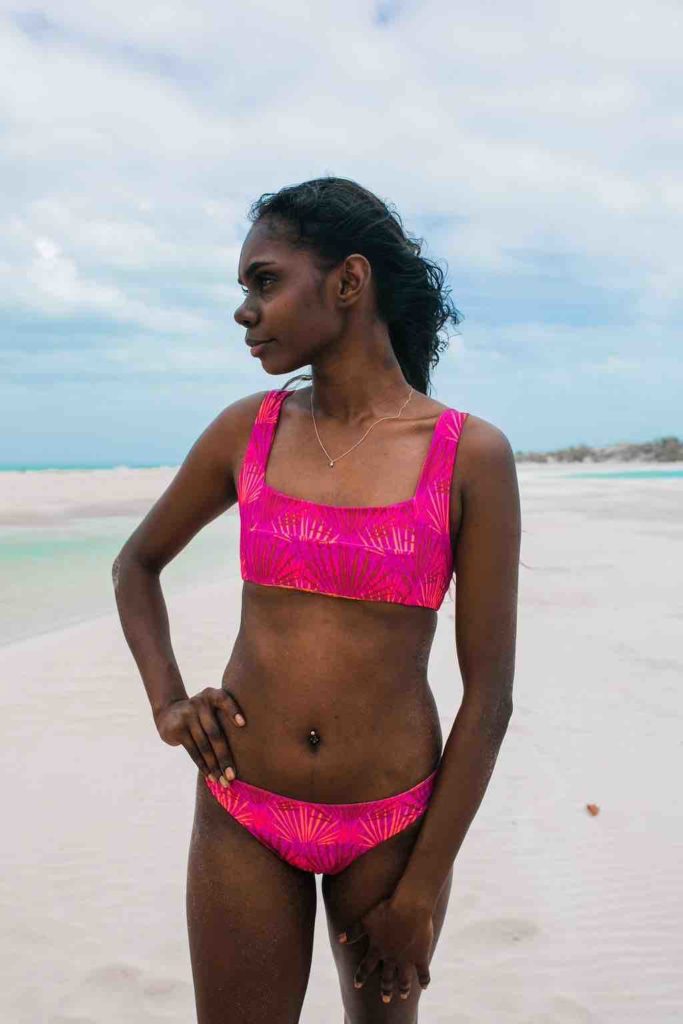
Advocacies: Body positivity, Inclusivity, Sustainability
Shop For: Swimwear in colorful prints, for all body types and skin tones
Liandra is a contemporary swimwear label based in Australia. Liandra Gaykamangu founded the brand in 2018 out of a desire to create positive dialogue around her Aboriginal Australian heritage and to share a slice of their culture to the rest of the world.
“The whole purpose was to use swimwear as a vessel to share stories about indigenous Australia, and also share positive narratives around indigenous Australian women,” she says.
Eco-consciousness is also a top priority- their fabrics are sourced from regenerated plastics and their packaging is biodegradable.
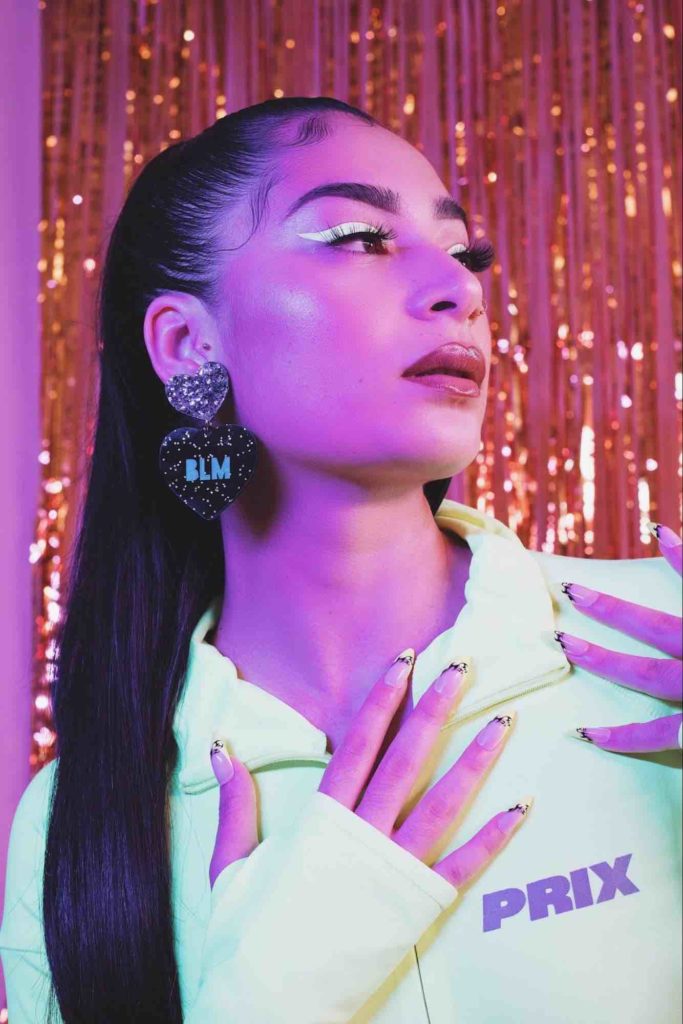
Advocacies: Inclusivity, Social activism
Shop For: Accessories that make social statements (literally)
Kristy Dickinson, self-proclaimed queen of bling and a proud Wiradjuri woman, started Haus of Dizzy in 2015 after realizing the lack of representation in the accessories world. She says, “I created the Indigenous pride collection so mob could show their pride in a cool, fun way and allies could support and open a dialogue around Indigenous issues.”
She makes eye-catching, colorful acrylic accessories with statements that celebrate and raise awareness on topics such as racism, gay rights, feminism, and environmental campaigns.
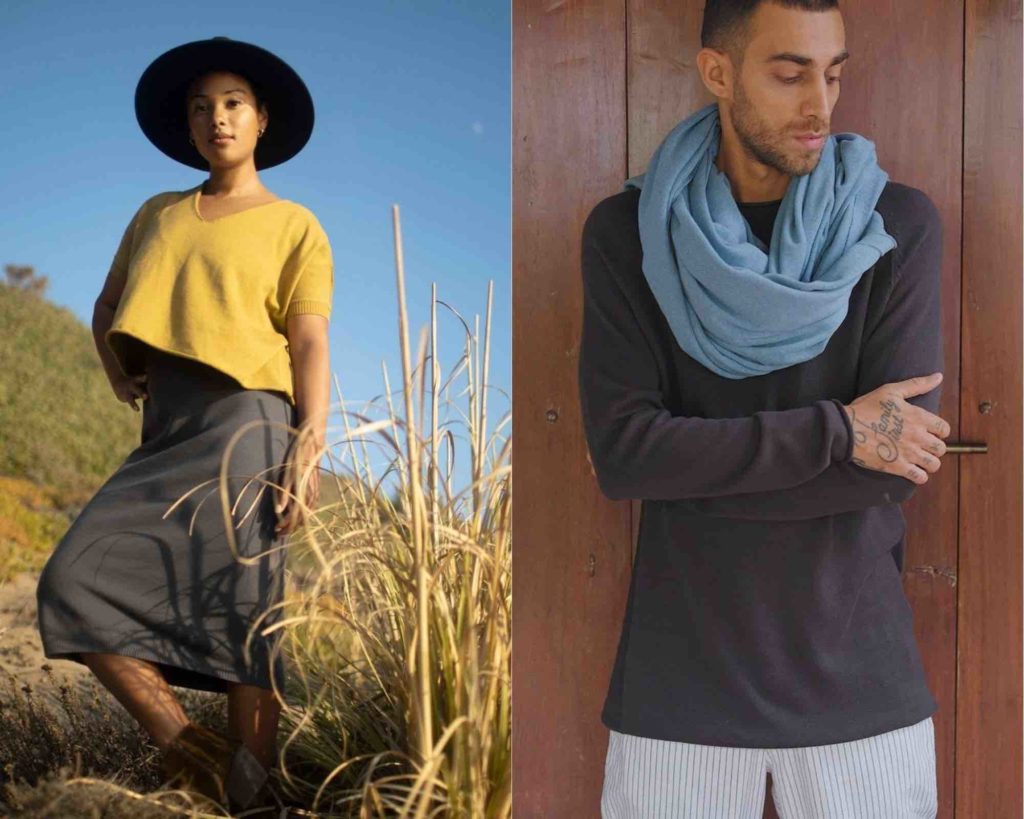
Advocacies: Vegan, Fair trade, Sustainability
Shop For: Zero-waste knits and comfy cotton basics
Apurva Kothari was living in the US when he read a news article on farmer suicides in India. It was happening not too far from where he grew up in Mumbai, and the figures shocked him. It moved him to take action against the unjust labor practices that Indian farmers had to put up with. He and his co-founder Diti Kotecha started NoNasties, a fair-trade, vegan clothing brand that uses organic cotton.
NoNasties is based in Goa, India and they make zero-waste knits in classic cuts, casuals for both men and women, and roomy canvas tote bags you can fold and take anywhere.
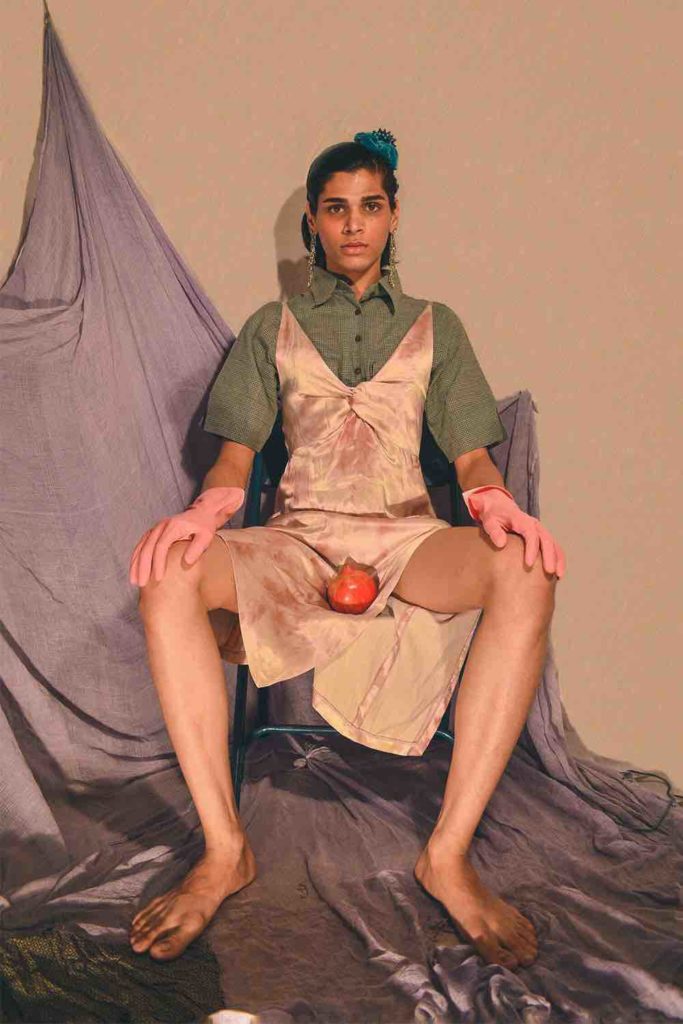
Advocacies: Sustainability, Circular Fashion, Inclusivity
Shop For: Contemporary womenswear featuring Indian textiles and prints
Maati is a PETA-verified womenswear label based in Udaipur, India. They use up-cycled fabric, naturally-sourced dyes and plastic-free packaging. “Maati” means soil in Hindi, and founder Neha Kabra chose the name as an ode to Mother Earth. With its effortless and flowy silhouettes, Maati’s clothes let you feel the breeze passing through, allowing you to feel the rawness of earth.
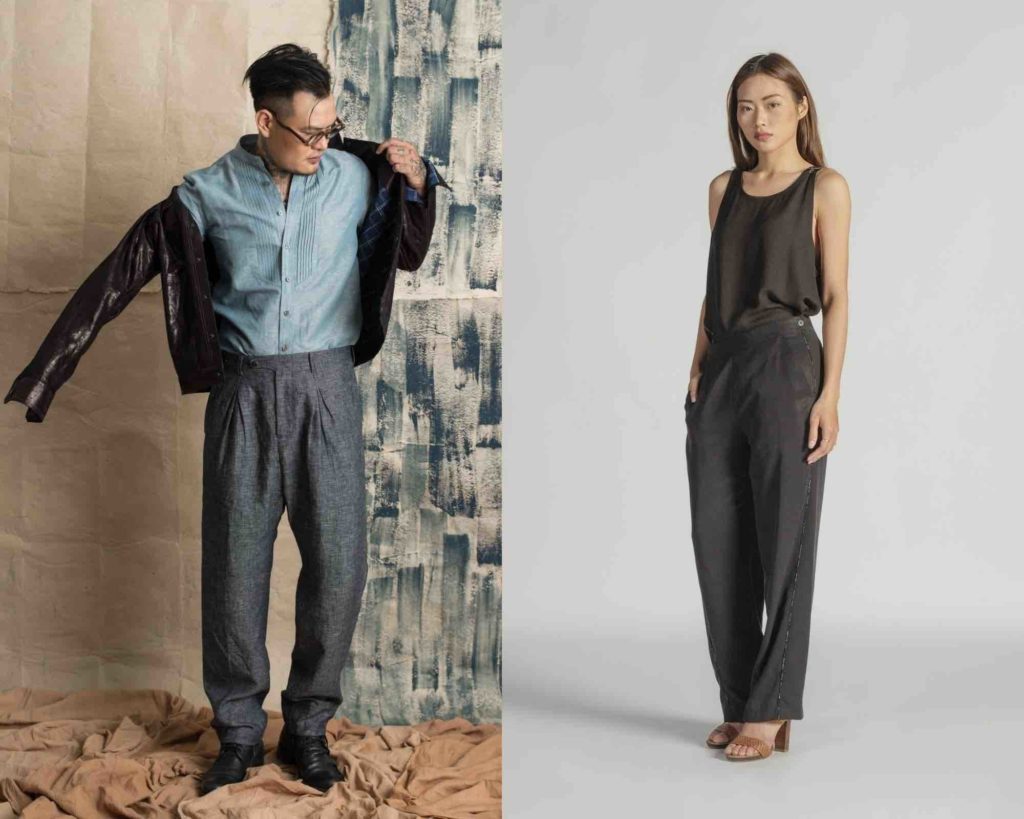
Advocacies: Indigenous culture preservation, Slow fashion, Sustainability
Shop For: Modern women and menswear using Vietnamese textiles and dyes
Mass-produced clothing typically uses synthetic dyes that are highly toxic and contribute largely to water pollution. Vietnamese designer Thao Vu takes her inspiration from the old way of doing things. She started her label Kilomet109 while working closely with women from Cao Bang, north of Hanoi. The small mountain village has become her creative base where she grows and produces all-natural dyes and fabrics for her clothing line. The traditional process takes more time and work, but is infinitely much better for the environment. Her merging of old techniques and contemporary designs result in easy, stylish pieces with a luxurious feel.
